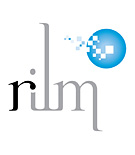Related Research Articles
The SAO/NASA Astrophysics Data System (ADS) is a digital library portal for researchers on astronomy and physics, operated for NASA by the Smithsonian Astrophysical Observatory. ADS maintains three bibliographic collections containing over 15 million records, including all arXiv e-prints. Abstracts and full-text of major astronomy and physics publications are indexed and searchable through the portal.

Google Scholar is a freely accessible web search engine that indexes the full text or metadata of scholarly literature across an array of publishing formats and disciplines. Released in beta in November 2004, the Google Scholar index includes peer-reviewed online academic journals and books, conference papers, theses and dissertations, preprints, abstracts, technical reports, and other scholarly literature, including court opinions and patents.
A bibliographic database is a database of bibliographic records. This is an organised online collection of references to published written works like journal and newspaper articles, conference proceedings, reports, government and legal publications, patents and books. In contrast to library catalogue entries, a majority of the records in bibliographic databases describe articles and conference papers rather than complete monographs, and they generally contain very rich subject descriptions in the form of keywords, subject classification terms, or abstracts.

Répertoire International de Littérature Musicale, commonly known by its acronym RILM, is a nonprofit organization that offers digital collections and advanced tools for locating research on all topics related to music. Its mission is "to make this knowledge accessible to research and performance communities worldwide….to include the music scholarship of all countries, in all languages, and across all disciplinary and cultural boundaries, thereby fostering research in the arts, humanities, sciences, and social sciences." Central to RILM's work and mission is the international bibliography of scholarship relating to all facets of music research.

The Social Sciences Citation Index (SSCI) is a commercial citation index product of Clarivate Analytics. It was originally developed by the Institute for Scientific Information from the Science Citation Index. The Social Sciences Citation Index is a multidisciplinary index which indexes over 3,400 journals across 58 social science disciplines – 1985 to present, and it has 122 million cited references – 1900 to present. It also includes a range of 3,500 selected items from some of the world's finest scientific and technical journals. It has a range of useful search functions such as 'cited reference searching', searching by author, subject, or title. Whilst the Social Sciences Citation Index provides extensive support in bibliographic analytics and research, a number of academic scholars have expressed criticisms relating to ideological bias and its English-dominant publishing nature.
Index Medicus (IM) is a curated subset of MEDLINE, which is a bibliographic database of life science and biomedical science information, principally scientific journal articles. From 1879 to 2004, Index Medicus was a comprehensive bibliographic index of such articles in the form of a print index or its onscreen equivalent. Medical history experts have said of Index Medicus that it is “America's greatest contribution to medical knowledge.”
Stephan George Kuttner, an expert in Canon Law, was recognized as a leader in the discovery, interpretation and analysis of important texts and manuscripts that are key to understanding the evolution of legal systems from Roman law to modern constitutional law.
SafetyLit is a bibliographic database and online update of recently published scholarly research of relevance to those interested in the broad field of injury prevention and safety promotion. Initiated in 1995, SafetyLit is a project of the SafetyLit Foundation in cooperation with the San Diego State University College of Health & Human Services and the World Health Organization - Department of Violence and Injury Prevention.

The Web of Science is a paid-access platform that provides access to multiple databases that provide reference and citation data from academic journals, conference proceedings, and other documents in various academic disciplines.

The International Medieval Congress (IMC) is an annual academic conference held for scholars specializing in, or with an interest in, the study of the European Middle Ages. It is organised and administered by the Institute for Medieval Studies at the University of Leeds and is held in early July. The Congress is the largest annual conference in any subject in the UK, regularly attracting over 2,500 registered participants, and has been used in some research as a barometer for trends in Medieval Studies generally. In 2020 and 2021 the conference was held online due to restrictions to manage the COVID-19 pandemic. Since 2022, the IMC has been held as hybrid event.

Leeds Studies in English was an annual academic journal dedicated to the study of medieval English, Old Norse-Icelandic, and Anglo-Norman language and literature. It was published by the School of English at the University of Leeds. In 2020, it was announced that Leeds Studies in English would merge with the Bulletin of International Medieval Research to become Leeds Medieval Studies, based in the Leeds Institute for Medieval Studies.

Trove is an Australian online library database owned by the National Library of Australia in which it holds partnerships with source providers National and State Libraries Australia, an aggregator and service which includes full text documents, digital images, bibliographic and holdings data of items which are not available digitally, and a free faceted-search engine as a discovery tool.
CAB Direct is a source of references for the applied life sciences It incorporates two bibliographic databases: CAB Abstracts and Global Health. CAB Direct is an access point for multiple bibliographic databases produced by CABI. This database contains over 11 million bibliographic records, which includes 746,000 full text articles. It also includes noteworthy literature reviews. News articles and reports are also part of this combined database. CAB Direct has now migrated to CABI's new platform CABI Digital Library - the new home of CABI's research content.

Peter Hayes Sawyer was a British historian. His work on the Vikings was highly influential, as was his scholarship on Medieval England. Sawyer's early work The Age of the Vikings argued that the Vikings were "traders not raiders", overturning the previously held view that the Vikings' voyages were only focused on destruction and pillaging.
The Bibliographie de civilisation médiévale (BCM) is a multidisciplinary bibliographic database covering Europe, North Africa and the Middle East for the entire period from AD 300 to 1500. It aims to provide a comprehensive, current bibliography of monographs and listings of miscellany volumes published worldwide between 1958 and 2009. This way, it is compatible with the International Medieval Bibliography, which focuses on individual articles in journals and miscellany volumes.
The Index Theologicus (IxTheo) is an international scientific open access bibliography for theology and religious studies.

The Institute for Medieval Studies (IMS) at the University of Leeds, founded in 1967, is a research and teaching institute in the field of medieval studies. It is home to the International Medieval Bibliography and the International Medieval Congress.
Simon Forde is a publisher and medievalist, noted as the former editor of the International Medieval Bibliography and founder of the International Medieval Congress.
The Bulletin de Philosophie Médiévale is an annual peer-reviewed open access academic journal of Medieval philosophy with a particular emphasis on unpublished works of medieval philosophy. it was established in 1959 and is published by Brepols under the auspices of the Société Internationale pour l'Étude de la Philosophie Médiévale (SIEPM). Its editor is Alessandra Beccarisi. The journal is abstracted and indexed in Bibliography of British and Irish History, Dialnet, Index Islamicus, International Bibliography of Humanism and the Renaissance, International Medieval Bibliography, Répertoire bibliographique de philosophie, Scopus, and elsewhere. It publishes articles in English, French, German, Italian, and Spanish.
Alan V. Murray is a Scottish historian and philologist specializing in the history of the Crusades, Middle High German language and literature, medieval warfare and tournaments. He is Professor of Medieval European History at the University of Leeds and a former Director of the International Medieval Bibliography (IMB).
References
- ↑ "International Medieval Bibliography" . Retrieved 3 November 2011.
- ↑ "Brepols Database Information" . Retrieved 3 November 2011.
- ↑ "International Medieval Bibliography", Bulletin of International Medieval Research, 17-18 (2012), 105-7.
- 1 2 3 'The History of the IMB: 1967-2017', 50 Years of Medieval Studies at Leeds (2017).
- ↑ Sawyer, Peter (2009). "The Origins of the International Medieval Bibliography: Its Unwritten History (as told by its Founder)". Bulletin of International Medieval Research. 14 for 2008: 57–61.
- ↑ Macartney, Hilary (2007). "La International Medieval Bibliography como herramienta de investigación para la historiografía de ciudades medievales y sus territorios". La Ciudad medieval y su influencia territorial: Nájera. Encuentros Internacionales del Medievo 3, 2006: 439–450.
- ↑ 'International Medieval Bibliography', 50 Years of Medieval Studies at Leeds (2017).
- ↑ Simon Forde, 'Digitisation of the IMB', 50 Years of Medieval Studies at Leeds (21 June 2018).
- ↑ Alaric Hall, 'Editorial Note', Leeds Studies in English, n. s. 49 (2018), [iii].
- ↑ Murray, Alan V. (2001). "Thirty-Five Years of the International Medieval Bibliography (1967-2002)". Bulletin of International Medieval Research. 7: 1–9.